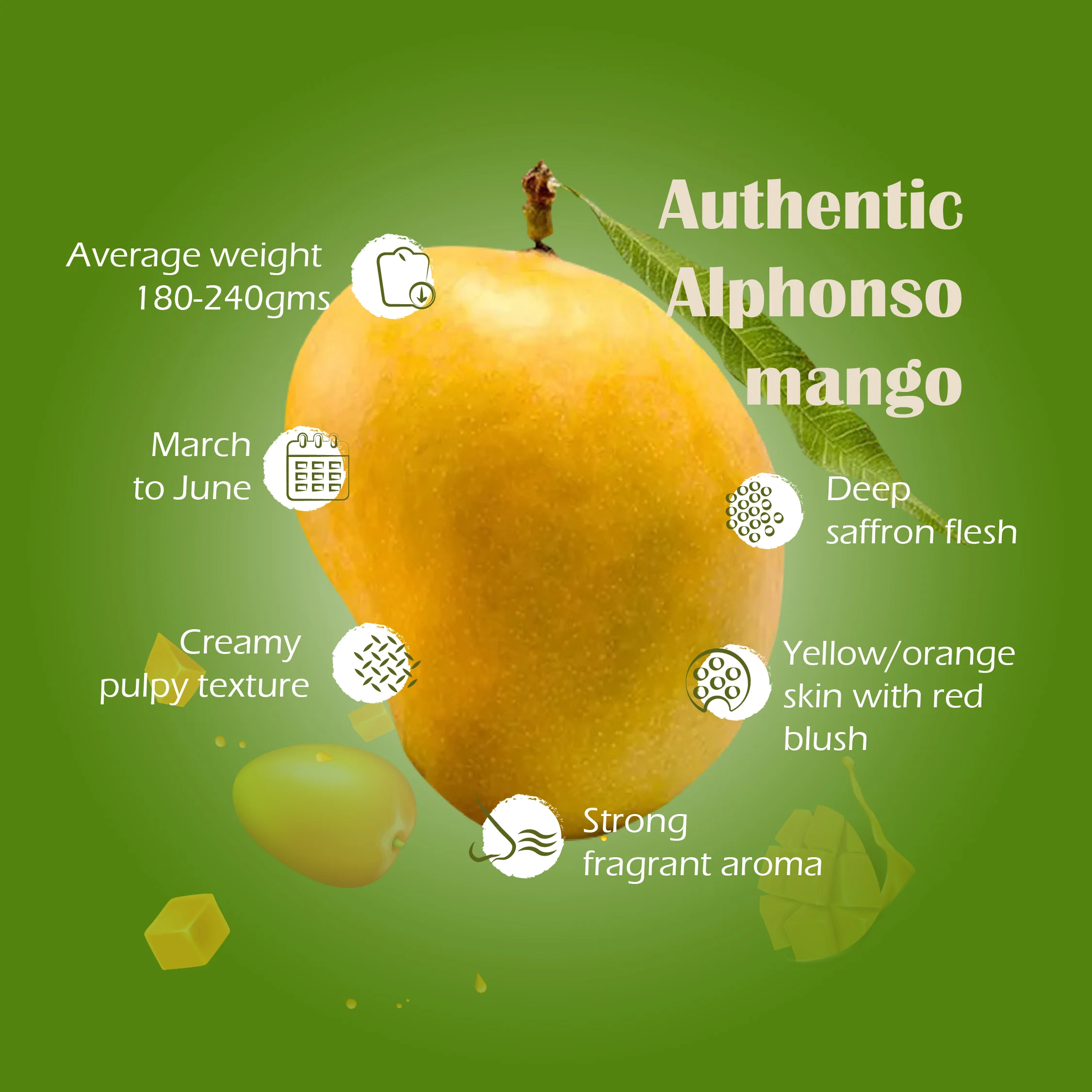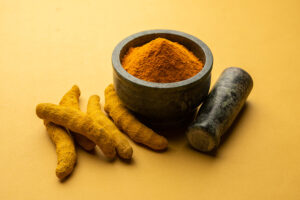Alphonso mangoes, often crowned as the “King of Mangoes,” are a prized delicacy
cherished for their rich
flavour, enticing aroma, and vibrant appearance. However, with the
rising popularity of this regal fruit, the market is flooded with imitations. To ensure you
relish only the finest and
authentic Alphonso mango experience, here’s a comprehensive
guide on how to identify the real deal.
1. Appearance Speaks Volumes:
The journey to identifying genuine Alphonso mangoes begins with their appearance.
Authentic Alphonsos exhibit a distinctive golden-yellow hue when ripe, with a subtle
blush of red on the cheeks. The skin should be smooth and free of wrinkles. Counterfeit
mangoes often lack the characteristic golden tone, displaying irregular coloring or an
unnatural shine due to artificial ripening agents.
2. Size and Shape Matters:
Original Alphonso mangoes adhere to specific size and shape standards. They are
generally smaller compared to other varieties, weighing approximately between 150 to
300 grams. The fruit has an ovoid shape with a pointed apex and a slightly flattened
base. Be cautious of irregularly shaped mangoes, as they may be impostors
masquerading as authentic Alphonsos.
3. Aroma: The Sweet Signature:
The unmistakable aroma of Alphonso mangoes is a true testament to their authenticity.
A genuine Alphonso emits a sweet, tropical fragrance that intensifies as the fruit ripens.
When you bring the mango close to your nose, the aroma should be robust and
captivating. A weak or lacking scent is a red flag that the mango may not be the original
Alphonso.
4. Texture and Firmness:
The texture of Alphonso mangoes is a key factor in their identification. Authentic
Alphonsos have smooth, non-fibrous flesh that melts in your mouth. When gently
pressed, the mango should yield slightly without being too mushy. Counterfeit mangoes
may have fibrous or stringy textures, indicating a different variety.
5. Taste the Authenticity:
Savoring the eating experience is perhaps the most reliable method to identify genuine
Alphonso mangoes. Real Alphonsos offer a perfect balance of sweetness and acidity,
creating a unique and unforgettable taste. The
flavour is robust, with subtle notes of
honey and citrus. Counterfeit mangoes may lack this distinctive taste, leaving you with a
disappointing imitation.
6. Seasonality and Source:
Alphonso mangoes have a limited harvesting season, typically from late March to early
June. Be cautious of mangoes claiming to be Alphonsos outside this period, as they are
likely to be fake. Authentic Alphonsos are primarily grown in the Ratnagiri, Sindhudurg,
and Raigad districts of Maharashtra, India. Mangoes from other regions may not be the
genuine Alphonso variety.
7. Certifications and Labels:
Look for certifications and labels that vouch for the authenticity of Alphonso mangoes.
Geographical Indication (GI) tags, such as the one granted to Ratnagiri Alphonso
mangoes, are reliable indicators of the fruit’s origin. Reputed sellers often provide these
certifications to assure customers of the mangoes’ authenticity.
 Conclusion:
Conclusion:
In a market teeming with imitations, discerning authentic Alphonso mangoes is
essential for a truly gratifying experience. By paying attention to appearance, size,
aroma, texture, and
flavour, and considering the seasonality and source of the mangoes,
you can confidently select the genuine Alphonso. Always purchase from trusted vendors
who prioritize quality, and remember that an authentic Alphonso mango is not just a
fruit; it’s a sensory journey that captivates the taste buds and lingers in the memory.







